Any Father’s Nightmare
"Cry, the beloved country, these things are not yet at an end. The sun pours down on the earth, on the lovely land that man cannot enjoy. He knows only the fear of his heart."
I have a personal goal I want to share with you. I hope to raise my children so that they never end up featured in an article in the magazine Texas Monthly. Sure, Texas Monthly will occasionally have good articles, but the majority of them are about the sleazy side of Texas. When they honored Sarah Weddington on the cover, I knew it was time to drop the subscription. I strive every day for something better for my children. For a similar reason, I hope my children never play out the lives of the children in Cry, the Beloved Country, by Alan Paton.
Cry, the Beloved Country was published in 1948. I read it in college in 1983 for a literature class, and then bought it and read it in 1996 while waiting to catch an overnight flight flight from San Francisco to Dallas. The thirteen years between readings had changed me a bit; I was now the father of six children. What struck me was that what took place in the book could happen in my own family. Suddenly the thought that my children could one day go wrong in a serious way was terrifyingly real. It had such an impact on me that I wrote a little note in the back of the book. It said,
“I feel as if Stephen Kumalo could be me;
I pray and will work that it will not be so.”
13 October 1996
Recent tragedies in 2006 drew me back to the book. The agony of a parent losing a child is something that I dread, and I know of several fathers who are suffering the loss of a child. Sometimes the possibility of a child losing their immortal soul is present, and it makes the loss even more painful. All of these things have weighed heavily on my mind, and I have spent a bit of time in soul searching. By reading Paton’s book again, I have the opportunity to consider how well I have done in keeping my words that I wrote nearly ten years ago.
The book recounts the life of two men in South Africa, played out on the field of Apartheid. Briefly, apartheid means ‘apartness,’ and refers to the segregation of non-whites from whites in South Africa. This policy adversely affected the economic and social situation for the native people of South Africa, and the disparity is seen poignantly in the two main characters, Stephen Kumalo, and James Jarvis.
Stephen Kumalo is a native, a minister in the fictional village of Ndotsheni. He and his congregation live in a drought-ridden valley where poverty and hunger are the norm. Most of the young people have left the valley to find work in Johannesburg or the mines of South Africa. As it says in the book, people who go to Johannesburg tend to disappear. Stephen’s younger sister Gertrude recently left the valley to find her husband in Johannesburg. Stephen’s only son, Absalom, followed her shortly after when all letters to Gertrude were returned unopened, and he is lost to the big city. Stephen goes to Johannesburg to bring back his sister and son, but he finds his son too late. Absalom was arrested for the murder of a white man, a man who had been a vocal opponent to apartheid. The victim also happened to be the only son of James Jarvis.
James Jarvis lives on a ranch overlooking Ndotsheni, and enjoys all the benefits of a wealthy landowner. At one time, he hoped that his only son, Arthur, would take over the ranch and keep it in the family. However, Arthur went to Johannesburg as well, and became a successful engineer. He became active in the anti-apartheid movement, and was fearless in his support for the native people. He was in the middle of writing an essay on the ‘Truth about Native Crime’ when an intruder killed him. The elder Jarvis, who disagreed with his son on the subject of apartheid, began reading his speeches and papers as he closed out Arthur’s affairs. He begins to reconsider his thoughts about apartheid.
Stephen Kumalo and James Jarvis meet while they are in Johannesburg; first by chance at a house where they both have business, and later at the trial of Absalom. Absalom Kumalo is found guilty of the murder of Arthur Jarvis and is sentenced to death.
As the story ends, a change occurs in the valley. Jarvis begins contributing money and resources to improve the living conditions in Ndotsheni. His motivation is not clear; I could not tell if he is doing this in response to his son's death or because he has come out against apartheid. Stephen Kumalo goes back to his congregation, caring for his wife, nephew, and Absalom’s wife. The final scene of the story is that of Stephen praying for his son as the sun rises on the morning of his execution.
This story does not have a happy conclusion. There is a lot of sorrow and disappointment as Stephen Kumalo searches not only for his son, but also for others who have left their homes to find work in Johannesburg. Too late he finds Absalom; too late to rescue him from the life he has taken up which will now destroy him. Absalom repents for his crime, but the government will grant no clemency. James Jarvis loses his only son, a victim of a man whose cause he made his own. The loss of virtue, innocence and life found in Cry, the Beloved Country is why I refer to this book as ‘any father’s nightmare.’
So what can one do to avoid raising a child who becomes the next Absalom Kumalo? One solution is to raise children to practice the virtues and work on formation of their consciences. Another is to provide them with an environment for learning a trade or profession that will support their vocation (whatever that may be).
But the most important thing to do is to PRAY for your children. God will grant us whatever we ask for in Jesus’ name, so why not shoot for the moon? Why not ask for the graces for our children to grow in grace and service to the Lord, and for us parents to have the graces to raise our children properly? I take the example of my spiritual father, St. Patrick. According to legend, St. Patrick asked that Ireland be spared destruction at the end of the world. Apparently, God has granted his wish. If St. Patrick can pray for his descendents in this way, I should be able to ask for my children and my children’s children to become saints. It behooves me to spend my time now praying for my children, instead of praying for them on the local mountain as they face the executioner:
“Then he gave himself over to deep and earnest prayer,
and after each petition he raised his eyes and looked to
the east. And the east lightened and lightened, till he
knew that the time was not far off. And when he expected
it, he rose to his feet and took off his hat and laid it down
on the earth, and clasped his hands before him. And
while he stood there the sun rose in the east.”
I recommend this book without reservation. There are several notes written by the author for each of the publications of this book (Alan Paton died in South Africa in 1992), as well as an introduction that gives a bit more detailed explanation of apartheid. A list of words at the back, including a pronunciation guide, help for some of the words which are Afrikaans.
Character development is excellent, especially for the Stephen Kumalo, the main character. While the author treats him very sympathetically, we still see that he has his own failings that complicate his search in Johannesburg. His humility shines through, as he has to deal with his own sins and the effects of them on those around him.
A movie of this book was made in the 1990’s with James Earl Jones playing the part of Stephen Kumalo. I cannot recommend any movie because I believe my mental image of a character would be ruined by seeing an actor portraying that person.
dadwithnoisykids
F-K 9.0
8.3.2006
Theodore's Memorial Video
Subscribe to:
Post Comments (Atom)
Our Lady of the Mysterious Decapitation

Now restored with the help of some cement!
Prayer to Our Lady of the Mysterious Decapitation
Mary my mother, take my hand today, and all days.
Lead me away from all occasions of sin.
Guide me in fulfilling your last words in the Gospel,
"Do whatever He tells you."
Amen.
Lead me away from all occasions of sin.
Guide me in fulfilling your last words in the Gospel,
"Do whatever He tells you."
Amen.






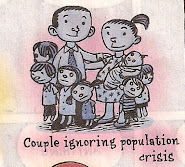
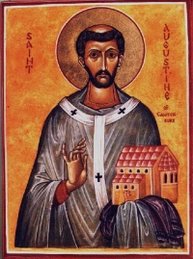



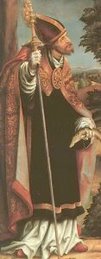
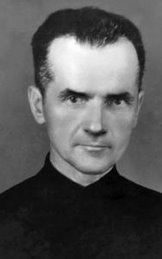

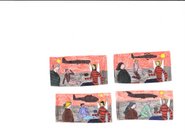
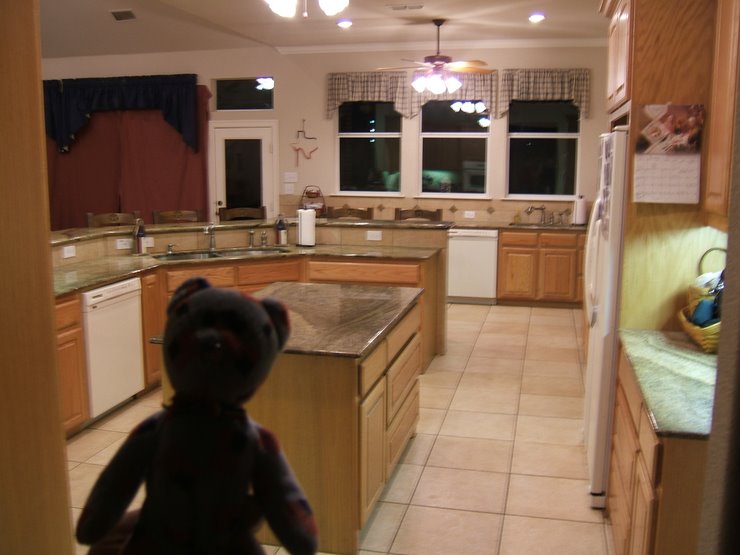

No comments:
Post a Comment